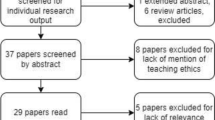Abstract
This article introduces some insights into the nature and features of maritime English and studies the effect of those on the future Maritime English syllabus. In this respect two approaches to the syllabus are highlighted: (a) the minimalist approach oriented to meet the minimum requirements the STCW Convention 1978/1995 (basically ensuring safe communication using appropriate parts of SMCP 2001), and (b) the extended approach within which Maritime English becomes a comprehensive educational subject within the overall Maritime Education and Training (MET) curriculum and ensures the future holder of a maritime academic degree efficient competence in English for conducting both sea and shore-based duties. To this end, the growing role and importance of General English within the Maritime English syllabus is emphasised. In order to be able to study the modern developments in Maritime English, a proposal is made for starting an international project of compiling and maintaining a web-based corpus of Maritime English, i.e. a textual and terminological database to be at the disposal of the students, Maritime English teachers and subject teachers in their research, learning and teaching activities.
Similar content being viewed by others
References
For further information refer to the Thematic Network on Maritime Education, Training and Mobility of Seafarers website: http://www.metnet.info, 2003.
Cole, C.:The impact of multicultural and multilingual crews on maritime communication—What is (y) our position? In:Conference on Maritime Education and Training — PADECC and WOME 10. Rijeka: IMLA & Rijeka College of Maritime Studies, Vol. 2, 1999, pp. 33–40.
Cole, C., Trenkner, P.:METNET — The Thematic Network on Maritime Education, Training and Mobility of Seafarers. In:Proceedings of WOME 11-11th IMLA Workshop on Maritime English. Varna: IMLA, 2001 (proceedings published on CD-Rom only).
cf.: Strevens, P., Johnson E.:SEASPEAK: A project in Applied Linguistics, Language Engineering,and Eventually ESP for Sailors. In:TESOL Convention. Honolulu, 1982, pp. 1–15; Strevens, P.:International Maritime English (Seaspeak). In:Fachsprache, 1988, pp.1-10; Strevens, P.:Seaspeak Reference Manual (Essential English for International Maritime Use). Oxford: Pergamon Press, 1984.
Trenkner. P.:Maritime English — an attempt of an imperfect definition. In:Proceedings of WOME 2A — 2nd IMLA Workshop on Maritime English in Asia. Dalian: IMLA, 2000, pp. 1–8.
Trenkner, P.:The IMO Standard Marine Communication Phrases as adopted by IMO-MSC 68. In:Proceedings ofWOME 9 — 9th IMLA Workshop on Maritime English. Malmö: IMLA, 1997.
Strevens, P., Weeks, F.:The Creation of a Regularized Subset of English for Mandatory Use in Maritime Communications: SEASPEAK. In:Language Planning Newsletter. Vol. 11(1985), No. 2, pp. 1–8.
Pritchard, B., Kalogjera, D.:On some features of conversation in maritime VHF communications. In: M. Coulthard et al.:Dialogue Analysis VII: Workingwith Dialogue. Tübingen: Niemeyer, 2000, pp. 185–197.
Hughes. T., Vihuri P.:The Use of English as a Standard Marine Language in Ship to Ship and Ship to Shore Communications. In:Maritime Dictionaries & Education. Turku: University of Turku, 2000, pp. 17–28.
Halliday, M. A.K., Strevens, P., McIntosh, A.:The Linguistic Sciences and Language Teaching. Oxford: Oxford University Press, 1964.
Logie, C.:Thinking globally, acting locally: implementation of IMO model course 3.17, Maritime English. In:Proceedings of WOME 11-11th IMLA Workshop on Maritime English. Varna: IMLA, 2001 (proceedings published on CD-Rom only).
Weeks, F.F.:Whither Maritime English. In:Proceedings of WOME 9 — 9th IMLA Workshop on Maritime English. Malmö: IMLA, 1997.
Pritchard, B.:Maritime VHF Communications: Standards versus Practice. In:Proceedings of WOME 2A—2nd IMLA Workshop on Maritime English in Asia. Dalian: IMLA, 2000, pp. 44–54.
Ellis, R.:Understanding Second Language Acquisition. Oxford: Oxford University Press, 1985.; and Cook, V.:Second Language Learning and Language Teaching. London: Arnold, 2001.
Sager, C.J., Dungworth, D., McDonald, P.:English Special Languages. Wiesbaden: O. Brand-stetter Verlag, 1980. Hutchinson, T.,Waters, A.:English for Specific Purposes: A learning-centered approach. Cambridge: Cambridge University Press, 1987. Dudley-Evans, T., St John, M.:Developments in ESP: A multi-disciplinary approach. Cambridge: Cambridge University Press, 1998.
Nisbet, A.:English for seafarers: The ship manager’s view. In:Proceedings of WOME 9 — 9th IMLA Workshop on Maritime English. Malmö: IMLA, 1997.
Op.Cit.12.
Pritchard, B.:The Role of General English in ESP — the Case of Maritime English. In:Proceedings of WOME11—11th IMLA Workshop on Maritime English. Varna: IMLA, 2001 (proceedings published on CD-Rom only).
cf. also Ba, M., Er, D., Cicek, I., Hag, O.K.:ITUMF Maritime English Education & Training Model. In:Proceedings of International Seminar on Maritime English. Istanbul: ITUMF-JICA, 2002, pp. 183–199. Nisbet, A.:Marlins Experiences of Standardising Systems for Maritime English. In:Proceedings of International Seminar on Maritime English. Istanbul: ITUMF-JICA, 2002, pp. 91–96.
Op. Cit. 15..
Partial answers can be found in the various deliverables to the MARCOM, EASTMET, and METNET Projects (cf. www.wmu.se) and these, along with the Seaspeak project, will provide the theoretical framework and reference material for further research.
The concept was initiated by G. Zade and has been explicated in the METNET project materials (final report and deliverables), cf. METNET website: www.metnet.info
Op. Cit. 3.
Weeks, F.:Ship to Shore Communications: Present Fact and Future Prospects. Personal communication, unpublished paper, 1998.
Marinelli, R., Roventini, A., Spadoni, G.:Linking a subset of Maritime Terminology to the Italian WordNet. In:Proceedings of 3a Conferencia Internacional de Terminologia Maritima. Lisbon: Instituto de Linguistica Teorica e Computacional, 2003 (in print).
Author information
Authors and Affiliations
Rights and permissions
About this article
Cite this article
Pritchard, B. Maritime English syllabus for the modern seafarer: Safety-related or comprehensive courses?. WMU J Marit Affairs 2, 149–166 (2003). https://doi.org/10.1007/BF03195041
Issue Date:
DOI: https://doi.org/10.1007/BF03195041




